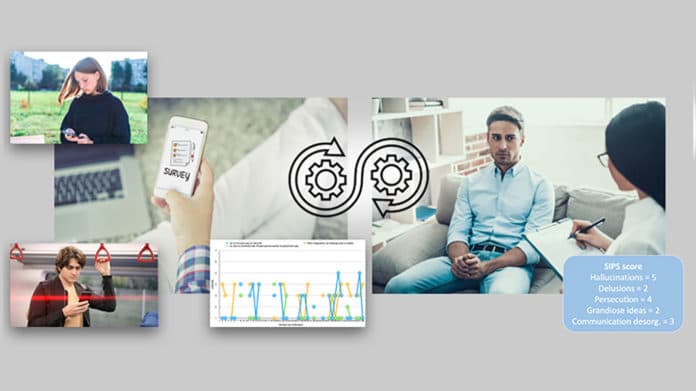Psychosis is a neurogenetic condition that affects the way your brain processes information. It causes you to lose your connection with reality.
Almost 3% of the population suffers from psychotic disorders. Continued medical follow-up is essential to avoid worsening the symptoms of psychosis and to monitor the evolution of the disorder in terms of frequency and intensity.
Psychotic experiences are classically evaluated by clinical interviews that give little information about psychotic symptoms’ fluctuation in daily life. However, trained professionals must conduct these interviews, last two hours, and are not necessarily accessible to everyone.
That’s why scientists at the University of Geneva have developed an application to monitor the frequency and intensity of the symptoms of people at risk of psychosis daily.
Maude Schneider, professor at the Faculty of Psychology and Educational Sciences (FPSE) in UNIGE, said, “People at risk for psychosis are traditionally assessed using a semi-standardized interview called SIPS (Structured Interview for Psychosis-Risk Syndromes). These questionnaires are very reliable, but they need to be carried out for two hours by trained professionals every three months approximatively, to be able to monitor the evolution of symptoms.”
“We asked ourselves if we could develop an application that would allow us to monitor the person on a more regular basis and in their daily environment.”
This remote monitoring would make it possible to space out face-to-face sessions and make them necessary only when the person is going through a crisis phase or exacerbating symptoms. The application will also make it easy for psychologists to determine what causes symptoms in the person’s daily life.
Through this study, scientists wanted to determine the functioning of a person at risk for psychosis in their naturalistic context through a daily assessment of symptoms. The application asks the person some questions over six days in a row about their positive effects, their negative effects, and the presence of psychotic symptoms.
Clémence Feller, researcher at Faculty of Psychology and Educational Sciences in UNIGE and first author of the study, said, “To determine whether the application provided information that was consistent with ‘classical’ assessment methods, the participants were also assessed using the SIPS interview. We assessed 86 people between the age of 11 and 27 with the application, 37 of whom were diagnosed with a microdeletion of chromosome 22q11.2.”
Maude Schneider said, “Our first observation is that people with psychotic symptoms are perfectly capable of answering the questions in the application daily, which allows a complete assessment of their symptoms over the course of the day. Moreover, the obtained results are very consistent with the information collected through the SIPS interview, attesting to the proper functioning of the application.”
Clémence Feller said, “Our idea is to have a person come face to face when the application detects a crisis phase, to avoid unnecessary travel and loss of time when such monitoring is not necessary. Moreover, this application allows close monitoring of people who do not have easy access to trained professionals. However, an initial interview with a professional is essential to assess the severity of symptoms. The application would also make it possible to evaluate the effectiveness of an intervention (psychological, pharmacological, etc.) by observing the change in the severity and frequency of symptoms daily. Finally, this method will enable us to identify the triggers for the appearance of symptoms in the person’s environment so that they can be addressed individually.”
Journal Reference:
- Clémence Feller et al. Psychotic experiences in daily life in adolescents and young adults with 22q11.2 deletion syndrome: An Ecological Momentary Assessment Study. DOI: 10.1016/j.schres.2021.09.024
